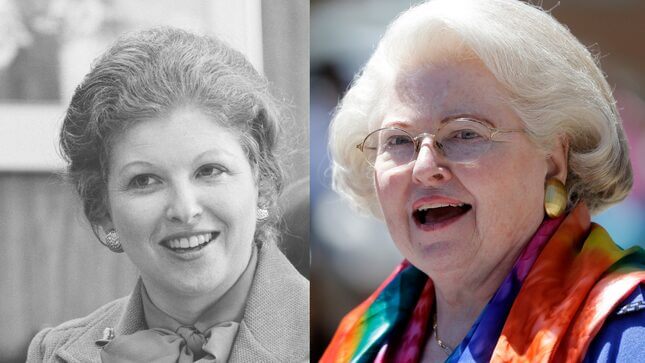Thank You, Sarah Weddington
The woman whose legal arguments won the legal right to abortion at the Supreme Court died in December.
AbortionPolitics

Linda Coffee still has the $15 check she used to file the first lawsuit that would become Roe v. Wade at the Supreme Court. Later, she would ask another young Texas woman lawyer to join the case, Sarah Weddington. “I don’t know that I really needed one, but I knew Sarah was planning a case,” Coffee told Jezebel by phone from her home in Mineola, Texas. The University of Texas law school only had a handful of women who enrolled and graduated at the time, so she knew of Weddington’s work ethic.
Together, they won the case, but for the 49th anniversary of Roe v. Wade on Saturday, this is the first year only one of them is alive. Weddington, who was the lawyer to successfully argue before the Supreme Court, died the day after Christmas. Though it was a thrill to talk to Coffee about her old partner in law, both women are largely forgotten in modern reproductive rights history.
Maybe it’s because neither were particularly flashy: Coffee went on to practice mostly bankruptcy law, while Weddington served in the Texas legislature for a time and then taught at her alma mater. But since Saturday is probably the last active anniversary of Roe, I decided to write a remembrance to Weddington following her death at the age of 76.
I found Weddington’s memoir in a used bookstore in Washington, D.C. I was in town to report on June Medical Services v. Russo. The blurbs on the back are news icon Linda Ellerbee; Ann Richards; Bill Clinton, still only the governor of Arkansas; Molly Ivins, my alcoholic writing hero; Larry King and Rosalyn Carter. It’s decidedly from a different time, but so was Weddington.
-

-

-

-

-

-

-

-

-

-

-

-

-

-

-

-

-

-

-

-

-

-

-

-

-

-

-

-

-

-

-

-

-

-

-

-

-

-

-

-








































